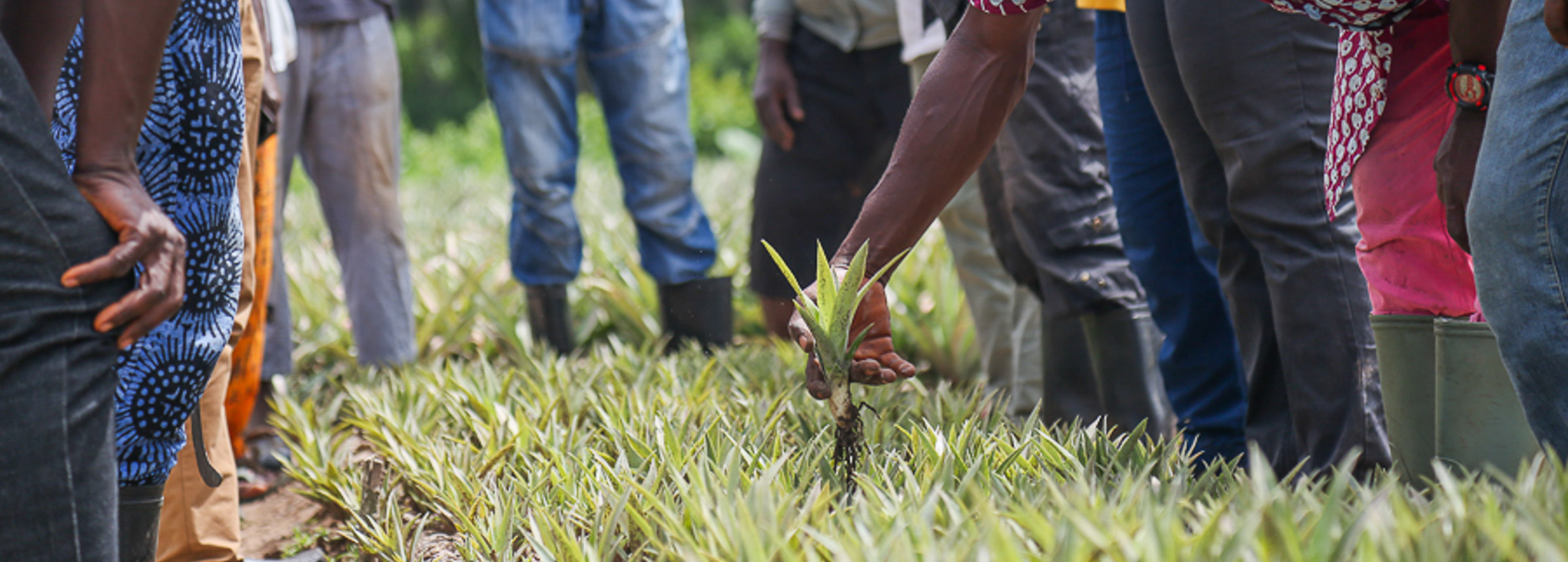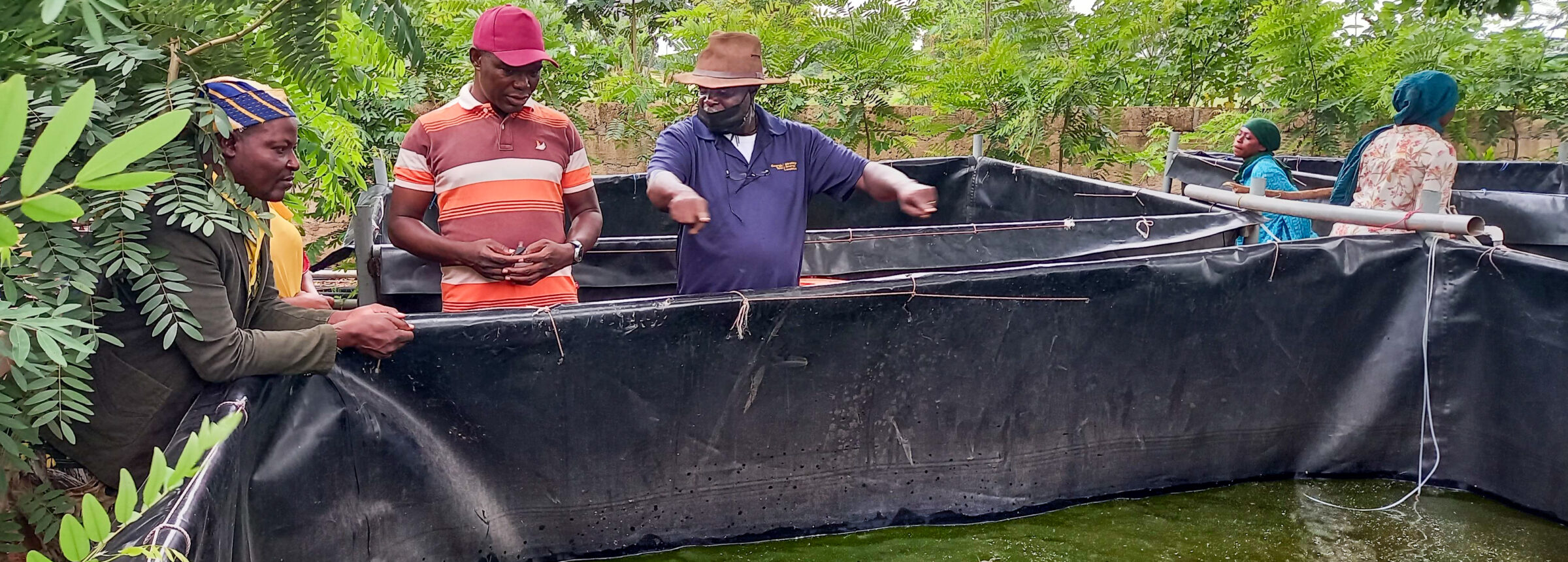
“It’s time to give back:” Winrock’s Volunteer of the Year supports locally-driven farming solutions in West Africa
How does an information technology auditor with a law degree and a doctorate in developmental studies become an expert on using maggots to transform organic waste into food-boosting compost?
For the answer to that question, you must meet Winrock’s 2023 Farmer to Farmer Volunteer of the Year, Dr. Isaac Zama of Fairfax, Virginia.
He is an IT pro by day, but before immersing himself in computer systems and tech, Zama first went to law school in Seattle, Washington, and earned a Ph.D. in developmental studies at the University of Wisconsin-Madison. His goals included developing the professional and technical skills that would enable him to make a positive impact in his home country of Cameroon. The West African nation is experiencing modest economic growth but, according to The World Bank, still struggles with poverty and infrastructure development.
Zama said a doctorate in developmental studies seemed like a good path to gain a greater understanding of the challenges and solutions to help bring change to his home country. He dove in, strengthening research skills and acquiring deeper knowledge about the intertwined topics linking agriculture and economic growth.
After developing and successfully running his own small, organic farm for years in Maryland, in 2019, Zama started a nonprofit organization, Amba Farmers Voice. It focuses on reframing agricultural education that prioritizes and integrates Indigenous knowledge, cost-effectiveness and locally-based practical solutions. Zama has used the approach to inspire one-on-one or small group-focused learning and community-based farming in his homeland of Cameroon and in other West African countries, including Ghana and Nigeria.
“Previously, it was challenging for me to offer direct assistance to the people of my area,” Zama said about his academic choices. “Now, with all the experience I have, I thought that now it’s time to give back.”
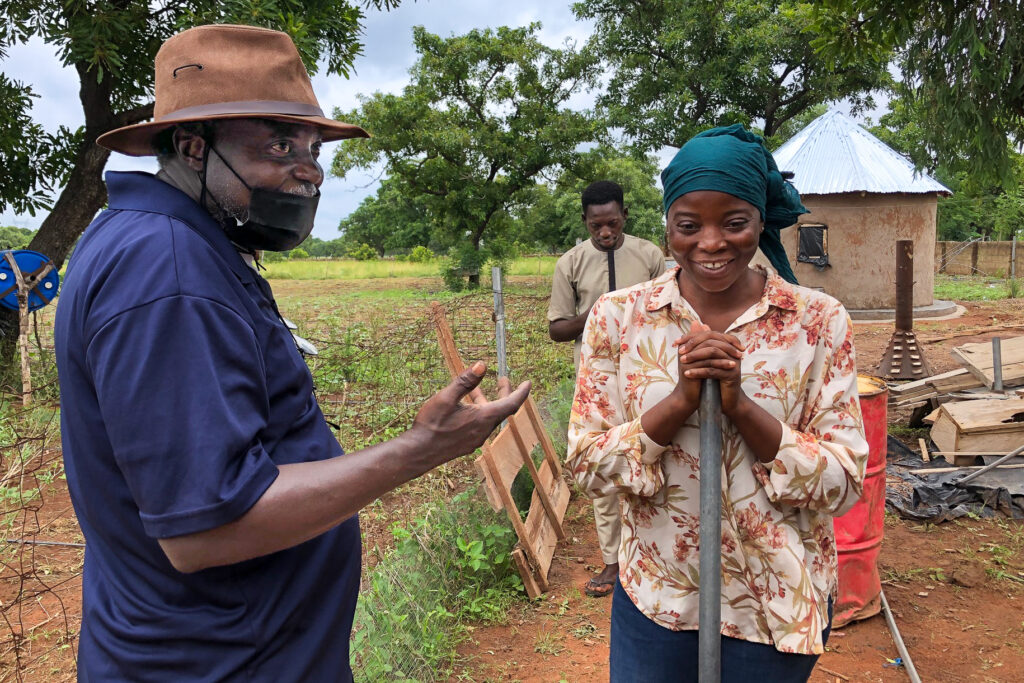
In 2022, Zama was looking for opportunities to engage with more farmers in Africa, and he learned about a program called Farmer-to-Farmer on USAID’s website. Aligned with Feed the Future, the U.S. government’s global hunger and food security initiative, F2F arranges volunteer experts to foster inclusive agriculture growth, facilitate private sector engagement, strengthen local capacity and promote climate-smart development. All volunteer F2F assignments focus on the priorities of in-country host organizations with the overall goal of supporting economic growth that increases incomes and improves access to nutritious food.
Winrock has implemented F2F assignments around the world for more than three decades. In that time, Winrock volunteers have completed more than 7,000 assignments in 59 countries, enabling U.S.-based volunteers to engage with farmers and agri-entrepreneurs to share their technical expertise. Volunteers often say they learn just as much or more from their hosts and fellow farmers than they impart, emphasizing that the technical knowledge and cultural experience flow in both directions.
Each year, Winrock selects a Volunteer of the Year in recognition of a first-time volunteer who demonstrates dedication and impact in completing a new assignment. In 2023, Winrock selected Zama for his outstanding F2F volunteer work in Walewale, Ghana. His assignment was hosted by a Ghanaian nonprofit called Participatory Guarantee Systems of Ghana that raises awareness of the benefits of organic agriculture and helps smallholder farmers and processors boost incomes by exploring opportunities to market their products and services. Zama worked with PGS Ghana to demonstrate methods for converting aquaculture pond residue into organic fertilizer for vegetable production, how to create floating fish feed pellets for organic tilapia and catfish production, and the value of black fly larvae (maggots) as an ingredient in fish and animal feed.
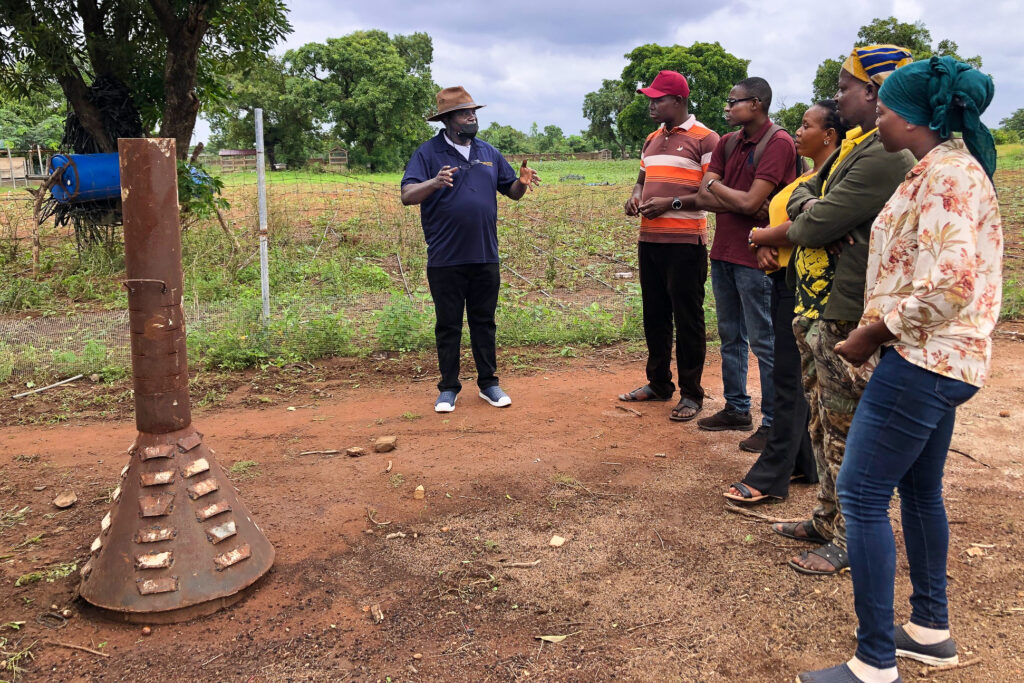
During his assignment, Zama worked alongside Issifu Sulemana, a PGS member and director of the Centre for Ecological Agriculture and Livelihood, to conduct the training. Zama delivered presentations and demonstrations using videos and printed material, as well as hands-on learning. The sessions demonstrated techniques for transforming the mucky residues left after aquaculture ponds are drained into an effective and inexpensive inoculate that can turbocharge compost piles. Nutrient-rich pond residues add nourishment to composts, increase soil fertility and can boost vegetable yields and revenues, adding up to a surprising source of increased income for farmers. Using what is available – and cheap – as a source of farm inputs is also better for the environment, as it helps replace costly and polluting chemical fertilizers.
Zama also demonstrated processes for producing fish pellet feed both manually and via an extruder machine. The extruder is used to press the neem seeds that produce oil. The byproduct of the oil, or the cake, is used to make fish feed or as a soil additive.
As the participants practiced making pellets, Zama revealed his next surprise, describing the protein-laden virtues of the undervalued and misunderstood maggot. Maggots are the larval stage of flies, and as Zama explains it, they play an important role in the breakdown of organic matter into usable compost. The larvae are rich in protein and if cultivated intentionally, can be tapped as a nutritious supplemental food source for poultry, fish, and crustacean farming.
The do-it-yourself skills and approach to organic farming demonstrated by Zama with PGS, using locally sourced ingredients, resonated with Ghanaian farmers.
“Fish feed is expensive and difficult to buy,” said Ahedor Mawule, a PGS Ghana member who attended Zama’s sessions. “Now I’ve learned to formulate fish feed, I can do it myself and expand my catfish farm. I’ll also share the knowledge with my workers and other fish farmers in Walewale.”
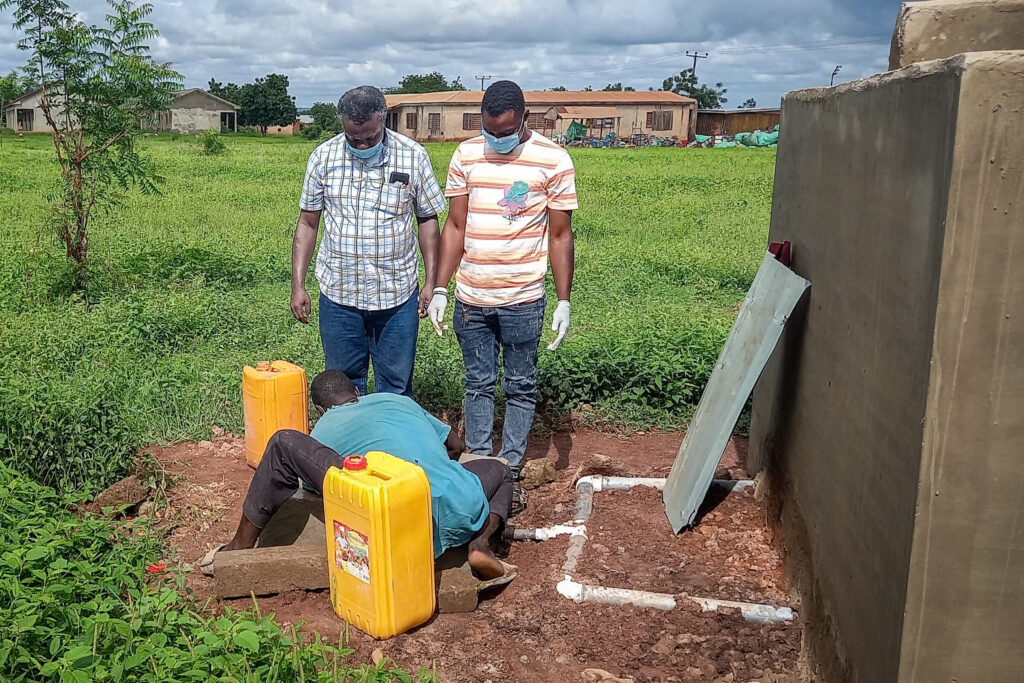
At his assignment’s end, Zama left behind clear recommendations for PGS to adapt and apply, so they could continue introducing and expanding the technologies he introduced. The organization has already moved forward, adopting some of the approaches and technologies he covered. They started a maggot production unit and have begun producing and applying organic foliar fertilizer (fertilizer sprayed directly on the leaves). These innovative techniques have enabled participants to experiment with practices and information gleaned from Zama’s assignment.
Zama was recognized as Winrock’s 2022-2023 Volunteer of the Year Award for helping to build the resilience of farmers with PGS Ghana and contributing to productivity and competitiveness. After his assignment, he shared information and materials with Winrock F2F country directors in a webinar during a F2F retreat. During the event, he spoke about what inspired him to volunteer and described some of the changes that Ghana’s innovative farmers are exploring and adopting.
“I was very, very happy to have won the award,” Zama said. “And most importantly to know that sharing my experience with the farmers had an impact. The experience “gives me more enthusiasm and courage to want to go back and work with other farmers.”
When Zama is not busy with his nonprofit or IT auditor job, he runs a half-acre farm in Upper Marlboro, Maryland, where he grows specialty produce including bitter leaf, tomatoes and melon, and researches medicinal uses of some of the produce – including for people with Type 2 diabetes.
“The goal for the farm for me is to do research so that when I have the opportunity to go on a Farmer-to-Farmer assignment, I can choose assignments that align with what I do on my farm so that I’ll be able to give them firsthand information,” Zama said.
Related Projects
